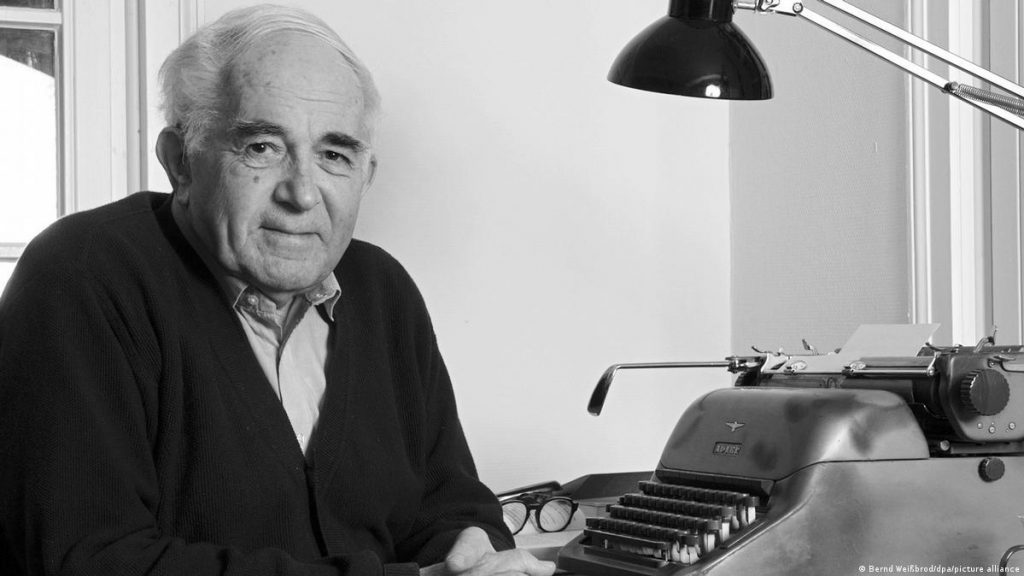Ernst Tugendhat (1930-2023) (updated)
Ernst Tugendhat, an influential German philosopher who taught at the University of Heidelberg, the Free University of Berlin, and other universities, has died.
The following memorial notice was written by Stefan Gosepath (Free University of Berlin).

The philosopher Ernst Tugendhat (1930-2023) died on March 13, 2023. Tugendhat was an eminent contemporary German philosopher who made important contributions to re-establishing analytic philosophy in Germany after the Nazi era, when almost all analytical philosophers had had to leave.
At the same time, Tugendhat distinguished himself as an intermediary between continental and analytic philosophy.
Trained by Heidegger in the Aristotelian and phenomenological traditions, he offered original arguments to show that analytic philosophy of language is the culmination of Aristotle’s ontological project. In his systematic, historically-oriented treatise on (analytic) philosophy of language (Traditional and Analytical Philosophy, P.A. Gorner trans., 1982), he bridges the gap between continental and analytic ways of philosophizing.
In response to the tradition of the so-called philosophy of consciousness, Tugendhat applies linguistic analysis to explain the problem of consciousness of the self (Self-Consciousness and Self-Determination, P. Stern trans.,1986). He argues that Wittgenstein’s view of self-knowledge and Heidegger’s account of practical self-understanding are intrinsically connected, because one is only conscious of oneself when one asks what kind of human being one aspires to be. This self-addressed question is also central in Tugendhat’s conception of ethics: for him, morality is justifiable only in relation to conceptions of the goodness of the self. His lectures on ethics (Vorlesungen über Ethik, 1993), in which he developed his ethical views, are considered the most significant contribution to German systematic moral philosophy of their time alongside the discourse ethics of Apel and Habermas.
Born into a Jewish family in Brno, Tugendhat emigrated to Venezuela; he received his BA at Stanford in 1949, his PhD at Freiburg in 1956, and his Habilitation at Tübingen in 1966. He held professorships in Heidelberg, Starnberg, and Berlin.
UPDATE (March 19, 2023): German President Frank-Walter Steinmeier sent public condolences to Tugendhat’s sister, Daniela Hammer-Tugendhat, calling him “one of the most important philosophers of the post-war period, whose thinking revolutionized and shaped German philosophy.” You can read the whole statement here. (via Christian Beyer)
Readers interested in learning more about Professor Tugendhat’s writings can browse some of them here and here.
Obituaries elsewhere:


Tugendhat did not emigrate to Venezuela. The Nazis forced his family to flee to that country.
Stefan, you are right, in a way: The Tugendhat family would not have wanted to leave their native Czechoslovakia, their house, their relatives and their business in and around Brno. They only decided to flee under the threat of the imminent German occupation in 1938. First, they moved to Switzerland, but under the threat of the war in Europe they moved on to the USA in 1940 before settling in Venezuela in 1941. This latter decision to emigrate to Venezuela, however, was not forced upon them by “the Nazis”, but seems to have been motivated by certain business opportunities and maybe also personal contacts.
An interesting account of this family’s history has been published by Tugendhat’s nephew, the Canadian anthropologist Michael Lambek: Behind the Glass. The Villa Tugendhat and Its Family (University of Toronto Press, 2022).